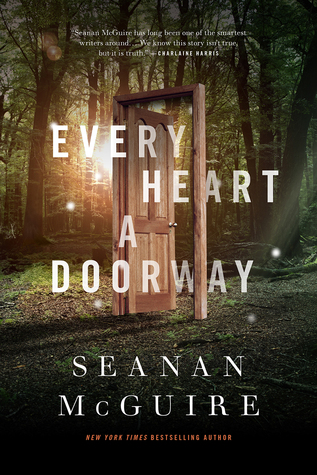Check it out, it’s the first traditionally published fiction book of the year and one with some asexual representation! Not only that, but it’s about a school full of kids who went to another world and had to come back to their own world and didn’t adjust well to it, which I may have some thoughts on. So going into it, I was pretty excited.
The story follows Nancy as she’s brought to a boarding school where she and several other girls who have traveled to other worlds are given a place to remember where they were and acknowledge that it did happen while their parents get to think that they’re getting counselling to understand that it was all an elaborate delusion.
As a premise, I love it. A lot of the characters were interesting and I found myself interested in the worlds that they came from and how they were coping with the fact that they probably couldn’t go back. Going into the world and understanding where the characters were coming from was interesting. I did enjoy the dynamic between most of the cast and how their experiences interacted with one another.
The ending, though. That ending. It’s one of those things where it just kind of happens more than it’s built up towards. None of the characters really change or grow as a result of it and everything is wrapped up a little too neatly.
Jack was just always able to go back? Really? And who didn’t see that someone was building a perfect key as soon as Sumi’s hands disappeared? You only needed hands, eyes, a brain, and a pretty person to build the perfect key? Plus, Nancy learns something by way of reading a note that Sumi left for her? That whole ending is just so unsatisfying.
Now. The ace rep. It’s interesting to see how other people do it. This makes this book the second one I’ve seen and this one treats it very differently than the last one I read. Nancy knows going in and the first conversation where it’s brought up feels very unnatural. It’s smoother in the rest of the book, but that first conversation with Sumi feels really awkward, kind of like it was put in there purely so that they could get the word in there, and some of the other mentions feel a bit off. For a book with almost no mentions of people being in relationships, Nancy brings up sex in her internal monologue more often than feels natural in order to reinforce that she’s ace. ((But not aromantic. The book makes it very clear that she’s fallen in love.))
I feel like the trans rep might have been done better with Kade, but I can’t really say definitively on that front.
Overall, though, I did enjoy it. Apparently it’s a series, but the first book stands well enough alone that I probably won’t go back to it this year.

Comments
One response to “Every Heart a Doorway Review”
[…] to start. I have read three now. Simply an Enigma, Every Heart a Doorway, and No More Heroes. It’s a bit early for me to have thoughts, but I still have thoughts that I […]